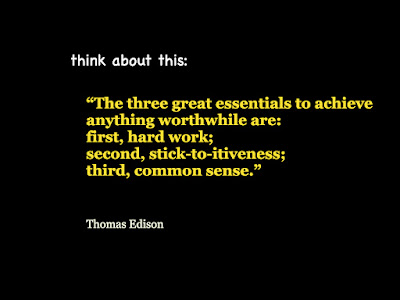Everything we do, or don’t do, sticks to us in some way. We can be happy, helpful, and positive, or curmudgeonly, standoffish, and negative. The choice is ours. As easy as it is to just reflect what’s around us, it’s better to have values, discipline, and a focus to guide our reactions to those things. This is especially true for leaders – they need to be positive and upbeat all the time, inspiring others with their honesty, respect, clarity, optimism, and can-do attitude. If they’re full of doom and gloom, it’s hard to expect much more from those they’re leading. Because they set the tone that others follow. Part of it is being prepared – getting enough rest, exercising their bodies and minds, having a plan and a focused perspective. Part of it is being aware, recognizing the interests and needs of others. And part of it is caring – treating others the way you want to be treated. Be straight with your peeps – straight answers, saying what you mean and meaning what you say, following through, and keeping your promises. Doing these things regularly or apologizing when you don’t. Add all this up – it equals being a caring human. That’s what we should be. Because what we do today, right now, will have an accumulated effect on all of our tomorrows. Starting today.
Alexandra Stoddard (born 1941): American author, interior designer, and lifestyle writer.





















